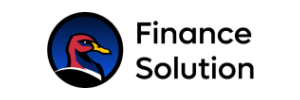Housing Loan in the Philippines
Housing loans play a crucial role in making homeownership more accessible in the Philippines. These loans provide the financial means to purchase a home, where borrowers pay back the loan over a set period with interest. It’s important to understand the terms, interest rates, and repayment schedules as these can affect your long-term finances. With careful planning and the right choice, a housing loan can help you achieve your dream home, providing both security and peace of mind. Remember, comparing different lenders can lead to more favorable terms, so take the time to explore your options.
| Company | Loan amount | Term of Loan | Age Limit | Apply | |
|---|---|---|---|---|---|
 | 500 – 25000 ₱ | up to 365 days | 🔥 The best offer today! | Apply for a loan | |
 | 500 – 25000 ₱ | up to 180 days | 🆓 First loan for FREE | Apply for a loan | |
| No applications with TIN, PAGIBIG, or Postal ID | |||||
 | 500 – 25000 ₱ | up to 135 days | ⏱️ Disbursed in 5 minutes | Apply for a loan | |
 | 1000 – 20000 ₱ | 61 days | 🆓 First 7 Days with 0% Interest! | Apply for a loan | |
 | 500 – 25000₱ | 91 - 180 days | Apply for a loan | ||
 | 1000 – 50000 ₱ | 🆓 First loan for FREE | Apply for a loan | ||
 | 1000 – 50000 ₱ | up to 365 days | 🆓 First loan free of charge | Apply for a loan | |
 | 1000 – 25000 ₱ | 61 – 180 days | Apply for a loan | ||
 | 2000 – 25000 ₱ | 62 – 360 days | 🆓 First loan for FREE | Apply for a loan | |
 | 1000 – 25000 ₱ | 91 – 365 days | ✅️ Most approved | Apply for a loan | |
 | 500 - 25000 ₱ | 61 – 365 days | Apply for a loan | ||
 | 500 - 25000₱ | 61 days | 🆓 0% interest to new customers! | Apply for a loan | |
 | 1000 – 25000 ₱ | 61 – 365 days | Apply for a loan | ||
 | 1000 – 25000 ₱ | 61 – 120 days | 🆓 First loan for FREE | Apply for a loan | |
 | 1000 – 25000 ₱ | 62 – 120 days | Apply for a loan | ||
 | 1,000 - 25000₱ | 61 - 120 days | 🆓 First loan for FREE | Apply for a loan | |
 | 1000 – 25000 ₱ | 61 days | Apply for a loan | ||
 | 1000 – 25000 ₱ | up to 1800 days | Apply for a loan | ||
 | 1000 – 50000 ₱ | 91 – 365 days | Apply for a loan | ||
 | 1000 – 30000 ₱ | up to 180 days | Apply for a loan | ||
APR (annual percentage rate) can vary from 0% to 143%. The loan duration is between 62 days and 20 years. Representative example: If you borrow ₱100.000 to return in 13 weeks, you will repay ₱124.725,87 in weekly installments of ₱9.594,29 (APR 143%). This is a service to find and compare loan and credits. The conditions depend on the financial company, product, amount and loan duration.
The process of applying for a loan
Applying for a housing loan in the Philippines is a straightforward process. First, you’ll need to prepare essential documents like proof of income, identification, and other financial records. Once these are ready, research different lenders to compare interest rates and terms. Make sure to choose a lender that fits your financial situation, as this can greatly affect the cost of your loan.
- Prepare documents: ID, proof of income, etc.
- Research lenders: Compare rates and terms
- Submit application: Fill form and wait for approval
Once you’ve chosen a lender, you can submit your application. This typically involves filling out a comprehensive form, detailing your personal and financial information. Always check that all information provided is accurate, as mistakes can delay the loan process. After submission, the lender will review your application and notify you of approval status. Patience is key, as this step might take some time.
Factors affecting loan approval
Securing a housing loan in the Philippines depends on several key factors. Your credit score plays a crucial role. Lenders assess your financial behavior through this score to gauge the risk of lending you money. A higher score often increases the chances of approval. Additionally, income stability is vital. Regular employment or a steady business income assures lenders of your ability to repay the loan.
Another important factor is your debt-to-income ratio. This is the percentage of your monthly income that goes towards debt payments. Lenders prefer a lower ratio, as it indicates financial health. Also, having a substantial down payment can positively impact your loan approval chances. It shows commitment and reduces the loan amount needed.
| Factor | Impact on Loan Approval |
|---|---|
| Credit Score | Higher scores improve approval chances |
| Income Stability | Steady income increases lender confidence |
| Debt-to-Income Ratio | Lower ratio is preferred |
| Down Payment | Larger down payment is favorable |
Benefits of getting a housing loan
Securing a housing loan in the Philippines offers several advantages that cater to various financial needs. First, it allows individuals to achieve their dream homes by spreading the cost over many years, making it manageable. Second, interest rates on housing loans are generally lower than other loan types, helping borrowers save money in the long run. Moreover, these loans often come with flexible payment terms, providing options that fit different budgets. Finally, having a housing loan can improve one’s credit score if managed responsibly, opening doors to better financial opportunities in the future.
Common challenges with housing loans
Securing a housing loan in the Philippines comes with its own set of challenges that can seem overwhelming at first. The primary concern for many is the stringent eligibility requirements. Potential borrowers often face disappointment when they realize they don’t meet the criteria for income, employment stability, or credit history. These requirements are in place to protect both the lender and the borrower, but they can be a roadblock for those with non-traditional income sources.
Another significant hurdle is the interest rates that can fluctuate, affecting the affordability of the loan over time. High interest rates can lead to higher monthly payments, pushing the dream of home ownership further out of reach. Finally, the complexity of the process itself is a barrier. Navigating through the paperwork, understanding terms and conditions, and comparing loan offers can be daunting without proper guidance. Don’t let these challenges crush your ambitions—accessing the right information and support is key to overcoming these obstacles.
How to calculate your mortgage
Understanding your mortgage calculation can help you plan your finances better. Start by identifying the principal loan amount, which is the total money you borrowed. Next, know the interest rate your bank offers; this is often a percentage applied annually. Consider the term of the loan, typically spanning 15 to 30 years, and factor in additional costs like taxes and insurance. Use a mortgage calculator online to simplify this process and see your monthly payment. Keeping these elements in balance ensures you make the most informed decision for your housing loan in the Philippines.
Government support for first-time borrowers
First-time homebuyers in the Philippines can benefit significantly from various government programs designed to make home ownership more achievable. The Pag-IBIG Fund is one resource that provides affordable housing loan options with competitive interest rates. It aims to help Filipinos purchase their first home by offering flexible terms.
- Pag-IBIG Affordable Housing Program: Tailored for low-income earners, this program provides lower interest rates and longer repayment periods.
- Home Development Mutual Fund (HDMF): A savings program where members can borrow against their contributions for housing needs.
Additionally, the government collaborates with local banks to offer special financing programs for first-time buyers. These initiatives ensure that owning a home is within reach for many Filipinos, providing essential support in the home loan process.
Making smart financial decisions
Understanding the dynamics of housing loans can empower you to make smarter decisions in the Philippines. Whether you’re planning to invest in your first home or upgrading to a new one, it’s crucial to analyze interest rates, loan tenure, and repayment options thoroughly. Weighing different offers can lead to significant savings over time, ensuring long-term financial stability. Always remember, a well-informed decision today paves the way for a secure tomorrow.
